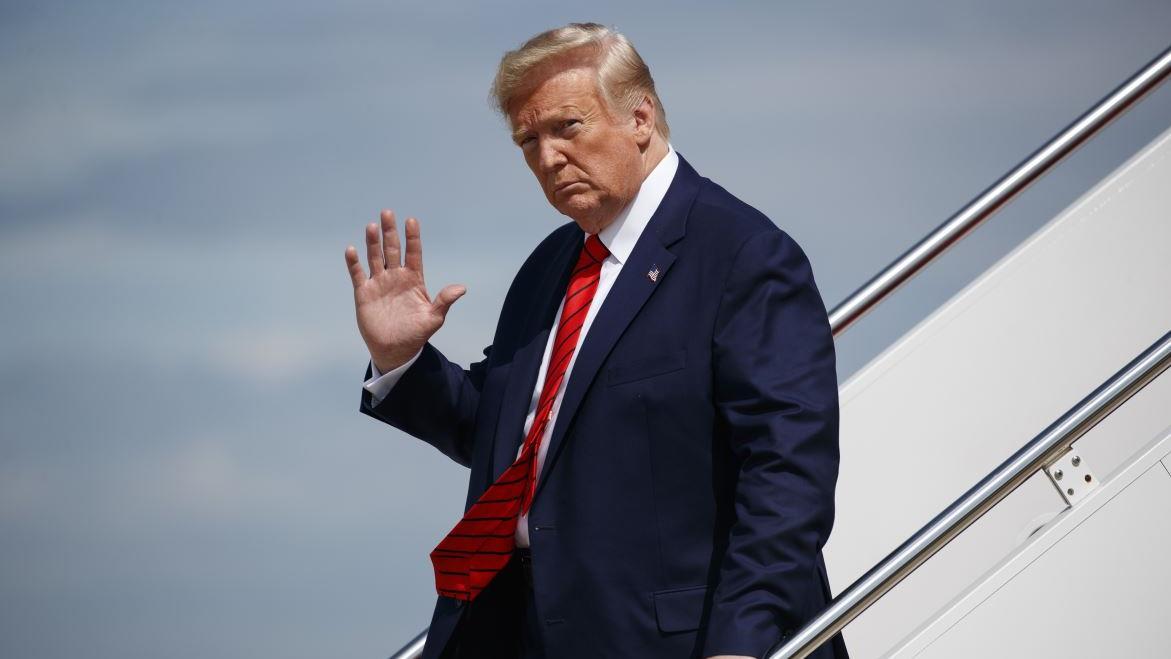China invites US trade negotiators for more talks
China’s chief trade negotiator has invited his American counterparts for a new round of face-to-face talks, according to people briefed on the matter, as both sides are struggling to strike a limited deal to help de-escalate tensions between the world’s two largest economies.
During a phone call late last week, Liu He, President Xi Jinping’s point person on trade negotiations with Washington, extended the invitation to U.S. Trade Representative Robert Lighthizer and Treasury Secretary Steven Mnuchin to hold the meeting in Beijing, the people said. U.S. negotiators have indicated they would be willing to meet in person, according to the people, but that they would be reluctant to trek across the Pacific unless China makes it clear that it would make commitments on intellectual-property protection, forced technology transfers and agricultural purchases.
Chinese Commerce Ministry spokesman Gao Feng said Thursday that the two sides have been keeping in close touch. Chinese officials hope the in-person negotiations can take place before next Thursday’s Thanksgiving holiday in the U.S., but the U.S. side hasn’t committed to a date.
The two sides had taken turns traveling to each other’s capitals earlier this year, only to see a near agreement fall apart in early May after China made substantial changes to the draft pact. Now, both parties are trying to strike a slimmed-down version of that deal, involving China potentially making certain concessions in exchange for removal of some tariffs.
Meanwhile, Beijing is stepping up efforts to win over international organizations traditionally dominated by Washington, as bilateral tensions continue to spread to areas beyond economic issues and threaten to embolden hard-liners on both sides. Most notably, Congress passed a bill in support of democratic freedoms in Hong Kong as clashes between police and pro-democracy protesters grow more violent in the former British colony. Chinese officials have condemned the U.S. actions and vowed to retaliate.
On Thursday, Premier Li Keqiang scored a public-relations win while hosting leaders of international organizations at a high-level forum. Chiefs from the International Monetary Fund, World Trade Organization and World Bank Group took turns praising China for its expanding role in global affairs, as they sat alongside Mr. Li at the 1+6 Roundtable, an annual event where Chinese leaders sit down with six international organizations.
GET FOX BUSINESS ON THE GO BY CLICKING HERE
Ángel Gurria, secretary-general of the Organization for Economic Cooperation and Development, called China a “champion of multilateralism.”
However, the leaders from the heavyweight organizations remained largely silent, at least in public, on the violent clashes in Hong Kong. A few remarks appeared to be veiled criticism of China’s handling of Hong Kong or its state-led industrial policy, although they were ambiguous.
World Bank President David Malpass said he had suggested to Chinese leaders that they strengthen their rule of law but didn’t elaborate. Hong Kong is known as having a strong rule of law.
Asked at a regular press briefing whether the Hong Kong issue would affect trade talks, a Foreign Ministry spokesman condemned the U.S. bill and said that China hopes the two sides will find a compromise on trade.
U.S.-China trade negotiations have been stop and go, but the two sides have pushed for progress after calling a truce at the White House in October. Both sides agreed to conduct the negotiations in stages, with some knottier issues, such as Chinese subsidies to domestic companies, left for future discussions. But even a limited deal has appeared elusive at times.
In recent discussions, Chinese negotiators pressed their American peers hard on relaxing tariffs—both existing levies and those set to take effect on Dec. 15. At the same time, the Chinese officials have been resisting the U.S. request to guarantee China’s offer to buy more American soybeans, pork and other farm products. In addition, both sides have continued to haggle over how to get Beijing to better protect American intellectual property and stop pressuring U.S. companies to hand over technology.
By hardening its stance, Beijing is betting on President Trump’s need for a win in the midst of the impeachment inquiry and for his re-election bid next year. But the Chinese leadership, which wants a deal to relieve pressure on the economy, risks overplaying its hand. Anti-China voices in Washington are growing louder, which could pressure President Trump to toughen his position, too.
President Trump called out Beijing on Wednesday for the lagging trade talks, saying, “I don’t think they’re stepping up to the level that I want.”
CLICK HERE TO READ MORE ON FOX BUSINESS
“The talks now are at a fragile state,” said Paul Triolo, an analyst at Eurasia Group, a New York-based consulting firm. “Both sides are locked in a game of chicken, and the clock is ticking towards Dec. 15th.”
—Chao Deng contributed to this article.
Write to Lingling Wei at lingling.wei@wsj.com and Eva Dou at eva.dou@wsj.com




















